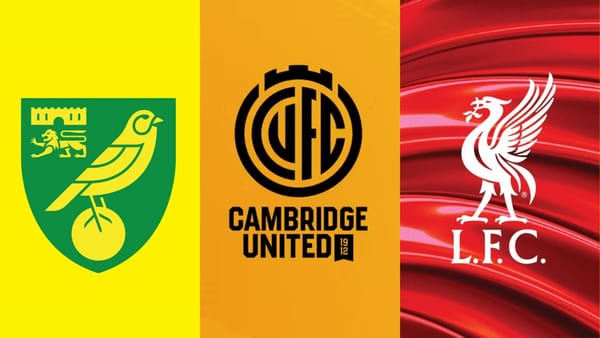The personal touch - football clubs and customer relationship management

As the football season draws to a close clubs begin to look towards next year and, most importantly of all, how to get bums on seats for the 2014-15 campaign. Matchday revenue may be dwarfed by television, but it’s still a massive money maker for many sides.
However with football becoming an increasingly expensive pastime marketing teams are having to get creative to keep bodies coming through the turnstiles. Adverts in the programme and mass mailouts no longer cut the mustard with an emerging generation of fans. New technology and proliferation of information, detailed and specific, about supporters mean that sides in both the Premier League and Football League are able to change up their methods of communicating with their audience. The result is the rise of personalisation.

Sunderland AFC paid tribute to their supporters this season
How do sides that have endured a difficult season and are understandably worried about loyal fans drifting away remind them that they’re an integral part of their football club and get them to part with their hard earned? This question would’ve been posed to Sunderland AFC’s marketing team this season. The answer they came up was #SAFCLegends. Personalised literature was sent out to supporters, who saw their name added to an image of the Stadium of Light East Stand on their season card booklet. The club went further for a select few, who were chosen to have the stand renamed in their honour in real life on a match day. The campaign wasn’t particularly sophisticated, but the message was powerful and response from the season ticket holders the club were seeking to retain was overwhelmingly positive.
Other clubs have been much more ambitious in their attempts to secure the commitment of their supporters, opting for multichannel data marketing campaigns aimed at very specific segments. Birmingham City’s understanding that the long term future of the club was tied to the ongoing support of young fans, particularly young families, led to the creation of #passiton. The campaign, which was developed with 4Sight Sport, had a number of initiatives aimed at this particular audience such as free tickets for under 10s. Activation occurred across a number of channels including text messaging and mailout however the core of the campaign was online, on email and social media.
The Your History, Their Future element contained the most impressive use of data. Personalised Web Pages which included the fan’s name and a carefully selected memorable moment based on their age were sent to supporters, not only showcasing the history of the club but re-enforcing the importance of sharing their love of the Blues with the next generation.

Personalised web pages were a key element of Birmingham City’s #passiton campaign
By all measures #passiton was a success. The campaign was responsible for a 13 per cent jump in season ticket sales compared to the previous year, with the average age of season ticket holders falling as more young fans claimed a seat at St Andrews. The campaign also resulted in an increase in online sales while marketing costs were reduced by a quarter when compared with traditional methods.
What work goes into making sure that these often complex insight-driven initiatives are a success? I spoke to Jon Davies, the CRM & Digital Marketing Manager for Queens Park Rangers and one of those responsible for the award winning #ForeverRs season ticket campaign, about their experience of such a change in direction and reasoning behind it.
Matt Briggs: “Why did Queens Park Rangers decide to launch a campaign like #ForeverRs?”
Jon Davies: “We wanted to move the focus of our fans from the results on the pitch and encourage them to remember the positives from their experiences following QPR. Being a fan is not just about one season, it’s about supporting your local team and community. It also gave us the opportunity to improve efficiency compared to the club’s equivalent historical campaigns in terms of response and cost, centred on the club’s wider objective of becoming paperless.
“Then there was ensuring that fans felt a personal engagement with the club and an appreciation of their support through the difficult season. Each fan needed to be contacted using a method that was relevant to them, be it through traditional, digital or social channels, to give them the best possible experience.”
MB: “What challenges did you face when implementing the campaign?”
JD: “The main challenge was building an internal business case demonstrating the benefits of moving towards becoming paperless. The Box Office had sent out renewal packs successfully for many years, so some colleagues felt the risk associated with change was far greater than any possible reward.”
MB: “How did fans of the club react to the campaign?”
JD: “Very well! For two months the campaign was the most talked about topic among supporters on message boards, fan-sites and various social media platforms. The #ForeverRs hashtag received 2,144 mentions on Twitter and there were no complaints to either the Box Office or the customer services department regarding the campaign.”
MB: “What sort of impact did #ForeverRs have?”
JD: “Season ticket sales were 10 per cent greater than our target, which was based on the renewal rates of six other clubs that had also been relegated from the Premier League in previous years. Furthermore campaign costs were 44 per cent lower than the equivalent season ticket pre-sale campaign prior to the 2012/13 season, with a 78 per cent reduction in print costs alone.”
MB: “Has the club’s marketing strategy changed as a result of what you’ve learned from #ForeverRs?”
JD: “The success of the campaign demonstrated the importance of giving fans a personalised experience, which we have now rolled out to all marketing campaigns.
“The club’s spend on traditional print campaigns has also reduced drastically. Our focus has now shifted to fully-trackable CRM and digital marketing channels, with new fans experiencing a seamless journey into the club’s communication channels.”
Carefully planned and well implemented, it’s clear that targeted campaigns such as #passiton or #ForeverRs can boost ticket sales and reduce costs. Should we really be surprised? Football supporters are not a homogeneous group with the same wants and needs. They’re individuals and for too long clubs have been engaging with them blindly. Messages resonate much more when they’re tailored.
While fans expect more from their clubs, internally there is still resistance to such methods. As Jon points out for many clubs the major hurdle is going to be building a business case, particularly when so much is invested in the old methods of marketing which are, for the time being, still bearing fruit. Realistically though teams can afford to hold out? The results impressive results that both Birmingham City and Queens Park Rangers have experienced suggest not.





